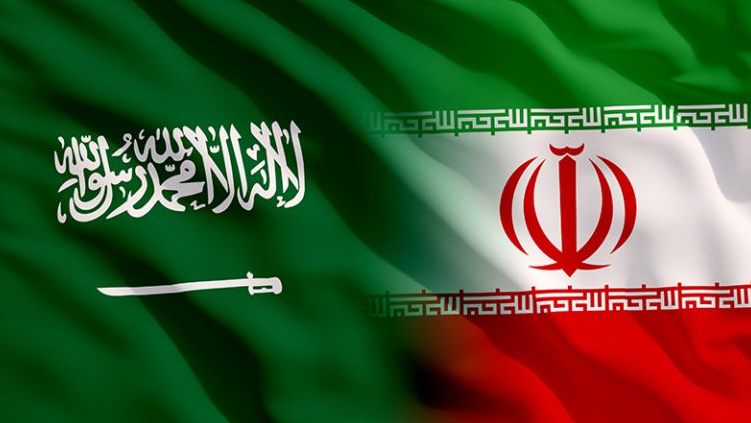After living in decades of strained relations, Iran and Saudi Arabia inked a historic deal earlier this month. The breakthrough— although a milestone for them— can be seen as the beginning of the end of their long standing bitter confrontation. But the agreement will prove a farce in case of its failure to set the stage for the restoration of tangible bilateral ties between the two neighboring rival states.
Signed in China — which mediated the agreement— the joint trilateral statement noted that the two countries resolved to safeguard the sovereignty of states and carry out “non-interference in the internal affairs of states”; they also pledged to reinstate their security cooperation pact ( 2001) and renew their 1998 general cooperation agreement revolving around investment, trade and economy.
Notably, the two countries saw days of talks in China which in effect layed the foundation for the historic occasion which has surprised the world given the animosity between the two signing parties. Earlier, there were two impactful high-level visits: by Iranian President Ebrahim Raisi to Beijing in February 2023 and Chinese President Xi Jinping’s visit to Saudi Arabia in December 2022. The latter’s trip had signaled that the groundwork was underway for a changed political landscape in the Middle East. And the top level meetings, apart from the Saudi-Iranian talks, ultimately ended up in signing the agreement on March 10. Beijing’s helping hand has apparently not gone well with the US and the regional power Israel, the two countries eying Tehran with suspicion and exploring ways to contain its influence.
While the thaw in Saudi-Iran relations is understood to have lasting implications both within and outside the Middle Eastern region , it is likely to prove a stepping stone towards a more stable and peaceful region. Both the oil-rich countries have a strong rationale to pave way for renewed and better relations between them.
The growing friction between China and America might have played a pivotal role in the Iran -Saudi bonhomie. Beijing is closer to Iran—more so because of the latter’s strained ties with Washington. Riyadh has historically been a close ally of the US. Will the deal in question push Saudi Arabia away from Washington? It will possibly because the Iran deal indicates that the kingdom is pursuing a foreign policy independent of America. A rare development in the America -Saudi ties.
Tehran has always sought an end to its diplomatic isolation, purportedly a handiwork of the western powers led by the US. Moreover, the Iranian regime had fears that Saudi Arabia and Israeli (viewed by Iran as its number one enemy) could cultivate diplomatic relations should Iran- Saudi quagmire continue. Such an episode would have further added to Tehran’s isolation and exasperated its security challenges and issues. Good relations with Riyadh raise the prospects of reducing the anti- Tehran resistance. And enable Iran to seek relief from the harsh sanctions slapped against it with respect to its nuclear program. To put it simply, Iran visibly looks eager to correct course.
On its part, Saudi Arabia’s positive and practical approach pertaining to the pact is rooted in its security concerns over tensions with Iran. The kingdom, over the past few years, has seen attacks on it — including on its oil facilities and infrastructure. Pertinently, the oil production of the country was badly impacted when a missile and drone hit its oil-processing installations in 2019. For the attack, Riyadh had accused Tehran. The latter had denied a hand in the incidents but their relations took another beating. Optimistically, the recent agreement will reduce the tensions.
Further, America’s focus on countering China and limiting its sphere of influence; soured relations between Washington and the Saudi administration— two vital factors appear to have made Riyadh change its mind. Accordingly, the kingdom, it appears, no longer perceives the US as its permanent ally. Yes, the ally who can guarantee security if the going gets tough.
Good ties with Tehran will also enable the Saudi government to see its ‘ Vision 2030 ‘ — which is aimed at diversifying the economy and upping its spending capacity on infrastructure and social sectors — take off to make the kingdom a centre for global investment. Moreover, the country’s leadership is seeking to reduce regional tensions and create a stable and favorable environment. Towards that end, lowering tensions with Tehran is a key requirement.
In addition, Riyadh has also done well to see its ties with Qatar and Turkey change for the better. Relations with these two countries need to be mended if the Saudi government does not intend to display a poor showing in the changing political climate of the region.
Meanwhile, the Saudi-Iran agreement is bound to affect the conflicts, proxy wars and issues in the Middle Eastern region—the thorny points which have seen the two countries at each other’s throats. Not only Yemen and Syria but also Lebanon and Iraq, have made the two sides bloodthirsty for each other. To address these issues, negotiation is the way forward.
Should the two countries manage to abide by their new found pathway, there are ample chances that the causes of the regional instability will be addressed; or atleast the tensions could be reduced. Will the two countries remind themselves of Winston Churchill’s advice: “jaw- jaw is better than war-war “?
(Author is RK columnist and teacher by profession. He can be reached on: [email protected])








